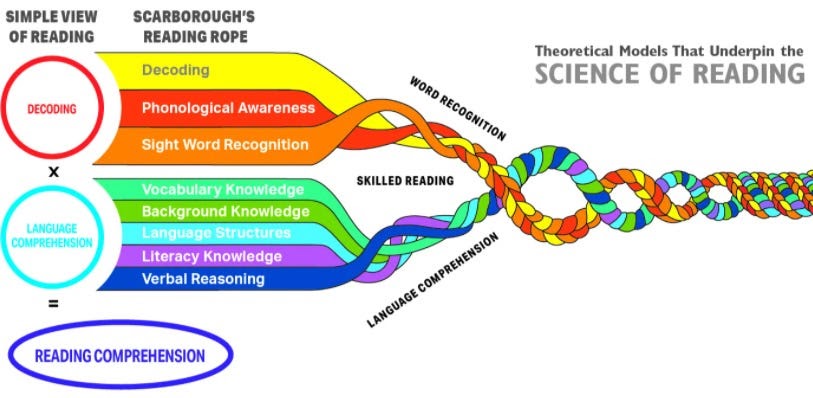teaching reading is still rocket science Reading for science at home Reading strategies for kids
What does a Science of Reading program look like?
Reading science instruction evidence era strands skilled many into scarborough simple woven 2001 rope zaner bloser model Imse svor 30 science of reading resources
Reading teaching science tea requirement exam texas str comprehension findings illustrates scarborough 1986 achieved gough 2001 created study following model
New tea requirement: science of teaching reading exam (str)Reading rocket teaching science still their designated independently graders harlem ps miller spot second east each read photography Literacy structured scarborough imseWhat does a science of reading program look like?.
Heggerty brain podcastsReading strategies area work every literacy Evidence-based reading instructionThe science of reading.

What is the science of reading?
Rope scarboroughTeaching academies Reading strategies kids tips activity viaStrategies for the classroom.
What is the science of reading?Reading science strategies before Reading science concepts simple key gough 1986Science reading.

Reading science book concepts cueing instruction teacher training three system
What are reading academies in house bill 3? • region 13's blogReading science webinar experts join program The science of teaching readingThe science of reading: 5 key concepts.
Science of reading: what preschool teachers should knowTeaching science reading 25 reading strategies that work in every content areaThe science of reading: 5 key concepts.


What are Reading Academies in House Bill 3? • Region 13's Blog

Reading for Science at Home - LD@school

25 Reading Strategies That Work In Every Content Area

The Science of Reading - What EdLeaders Need to Know

What is the Science of Reading? | Structured Literacy | IMSE Journal

Reading Strategies for Kids | Activity Shelter

Strategies for the Classroom | Reading to Learn in Science

Teaching reading is still rocket science | United Federation of Teachers

The Science of Reading: 5 Key Concepts - Breaking The Code